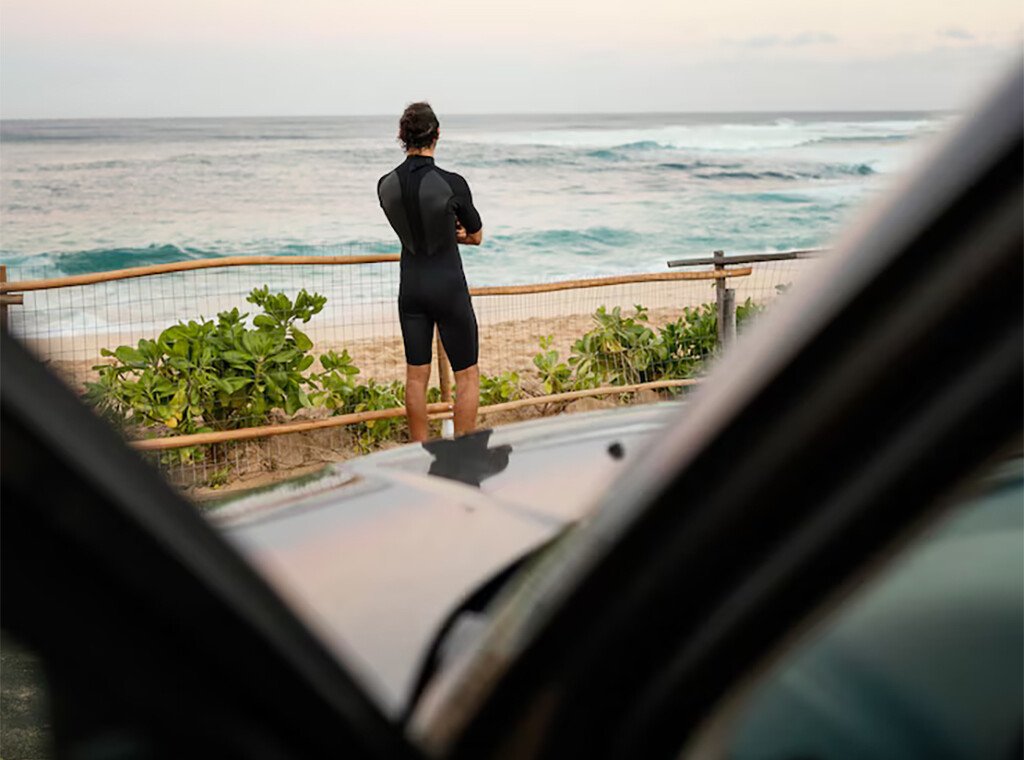Bali, renowned for its lush landscapes, vibrant culture, and spiritual ambiance, attracts millions of travelers annually. While the island offers an unparalleled experience, navigating its roads can be challenging for newcomers.
From bustling streets in Kuta to serene paths in Ubud, understanding local driving customs and safety protocols is essential for a smooth journey. This guide provides five crucial tips to ensure your safety and enhance your travel experience in Bali.
🚦 1. Drive on the Left Side of the Road
In Bali, vehicles operate on the left side of the road, a system similar to the UK, Australia, and Japan. For tourists accustomed to right-hand driving, this can be disorienting. It’s vital to remain vigilant, especially when making turns or entering roundabouts. Always double-check your mirrors and blind spots to avoid potential accidents.
🛵 2. Wear a Helmet When Riding a Scooter
Scooters are a popular mode of transportation in Bali due to their affordability and convenience. However, riding without a helmet is both illegal and hazardous. Bali’s traffic can be unpredictable, with motorbikes weaving between lanes and sudden stops. Wearing a helmet significantly reduces the risk of serious injury. Additionally, ensure that the scooter is in good condition, checking brakes, lights, and tire pressure before setting off.
📄 3. Carry an International Driving Permit (IDP)
To legally drive in Bali, foreign visitors must possess an International Driving Permit (IDP) alongside their home country’s valid driver’s license. Police frequently conduct random checks, especially in tourist-heavy areas. Failing to present the required documents can result in fines or other legal consequences. It’s advisable to apply for an IDP before traveling to ensure compliance with local regulations.
🐾 4. Be Aware of Local Road Hazards
Bali’s roads present unique challenges that require heightened awareness:
- Animals on the Road: It’s common to encounter dogs, chickens, or even cows wandering onto the streets, particularly in rural areas. Always drive cautiously and be prepared to stop.
- Ceremonial Processions: Bali’s rich cultural heritage means that religious ceremonies can temporarily block roads. Be patient and respectful, allowing processions to pass without obstruction.
- Narrow and Uneven Roads: Many roads in Bali, especially in regions like Ubud, are narrow, winding, and may have potholes. Drive slowly and be prepared to yield to larger vehicles.
- Weather Conditions: During the rainy season, roads can become slippery. Exercise extra caution, reduce speed, and maintain a safe distance from other vehicles.
🚘 5. Consider Hiring a Private Driver
If you’re unfamiliar with Bali’s road conditions or prefer not to drive, hiring a private driver is a safe and convenient option. Local drivers are well-acquainted with the island’s routes, traffic patterns, and cultural nuances. This allows you to relax and enjoy the scenery without the stress of navigating unfamiliar roads. Many reputable agencies offer daily rental services, often at reasonable rates.
🧭 Additional Tips for Safe Travel in Bali
- Avoid Using Phones While Driving: Distracted driving is a leading cause of accidents worldwide. Keep your phone out of reach to maintain focus on the road.
- Use Navigation Apps: Applications like Google Maps or Waze can assist in finding the best routes and avoiding traffic jams. However, always remain alert and don’t solely rely on GPS.
- Respect Local Customs: Bali’s culture emphasizes respect and politeness. Always greet locals with a smile, dress modestly, especially when visiting temples, and adhere to local etiquette.
- Stay Calm in Traffic: Bali’s traffic can be congested, particularly during peak hours. Practice patience and avoid aggressive driving behaviors.
- Emergency Numbers: In case of an emergency, dial 112 for general assistance, 118 for ambulance services, and 110 for police.
🌟 Conclusion
Navigating Bali’s roads requires awareness, patience, and respect for local customs. By following these tips and staying informed, you can ensure a safe and enjoyable journey across the island. Whether you’re exploring the beaches of Seminyak, the temples of Ubud, or the rice terraces of Tegalalang, a mindful approach to road safety will enhance your Bali experience.










Join The Discussion